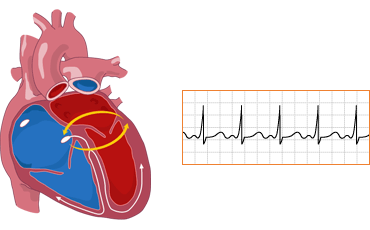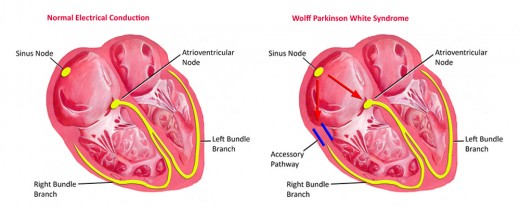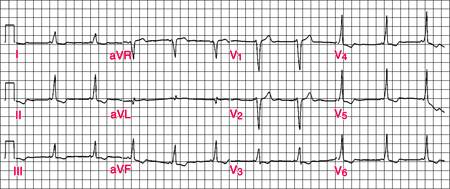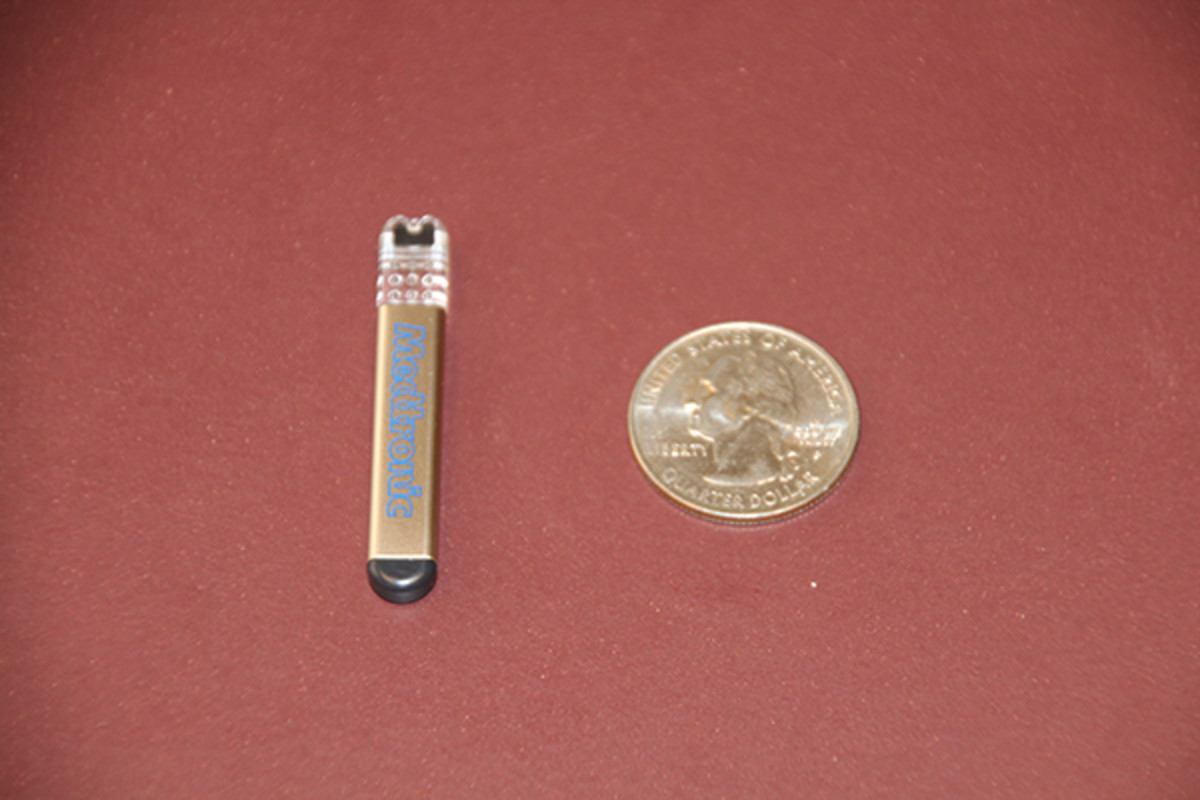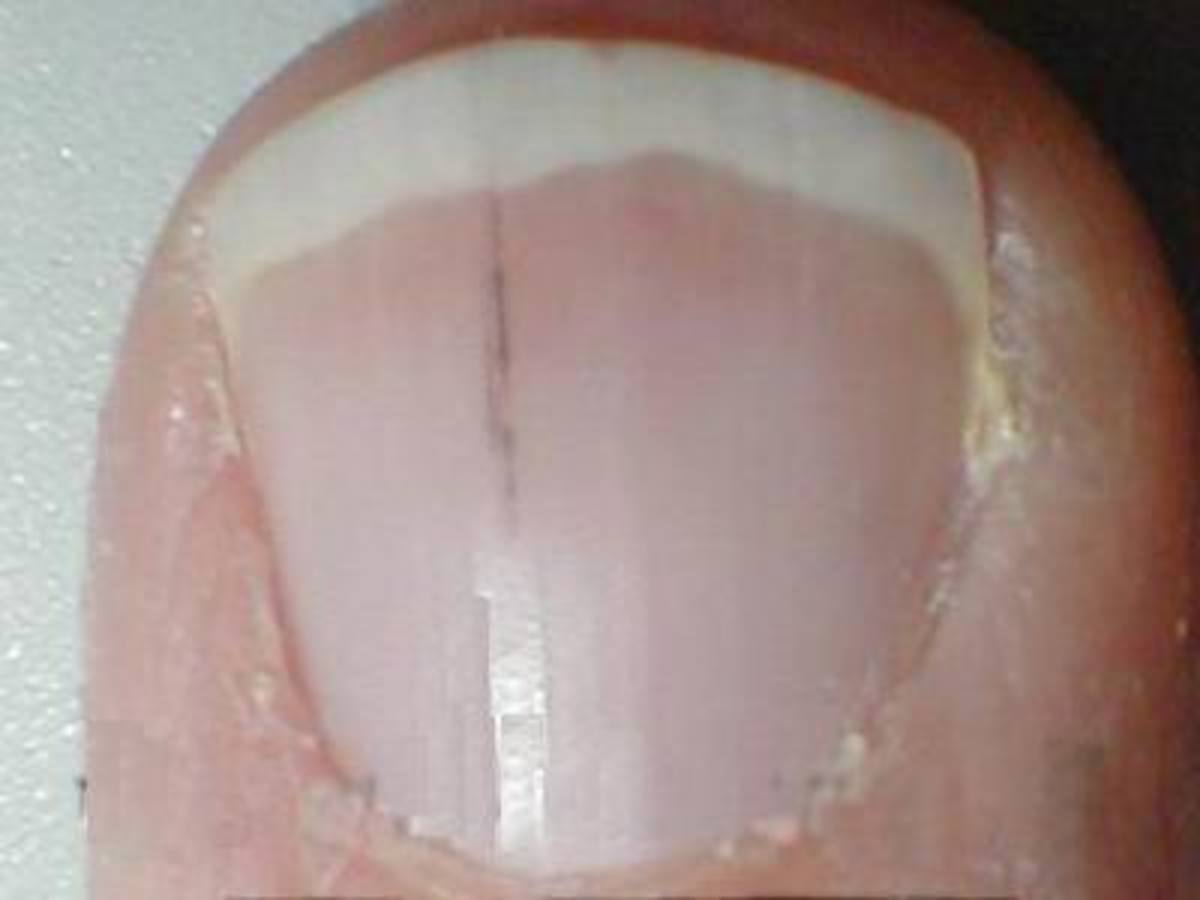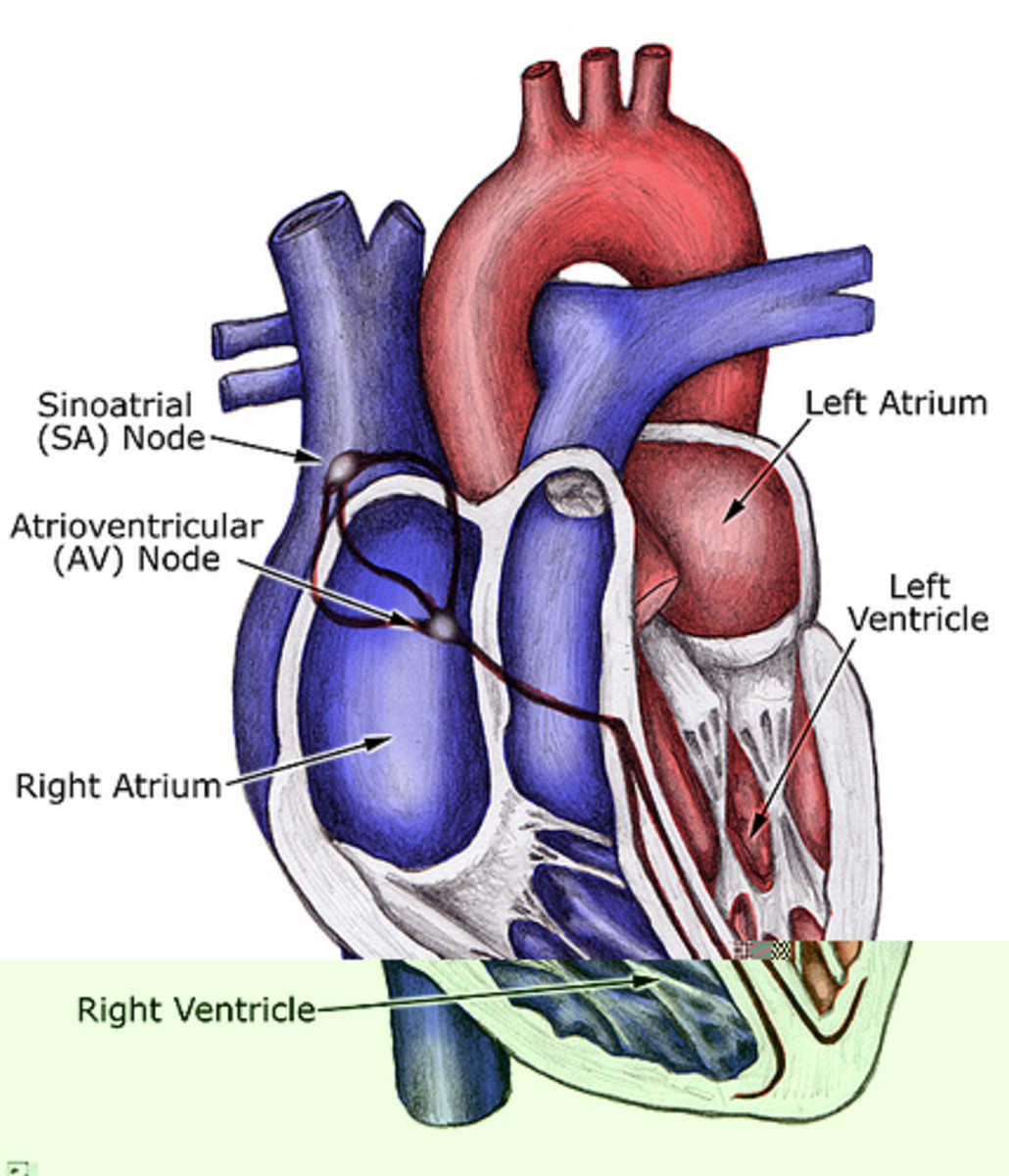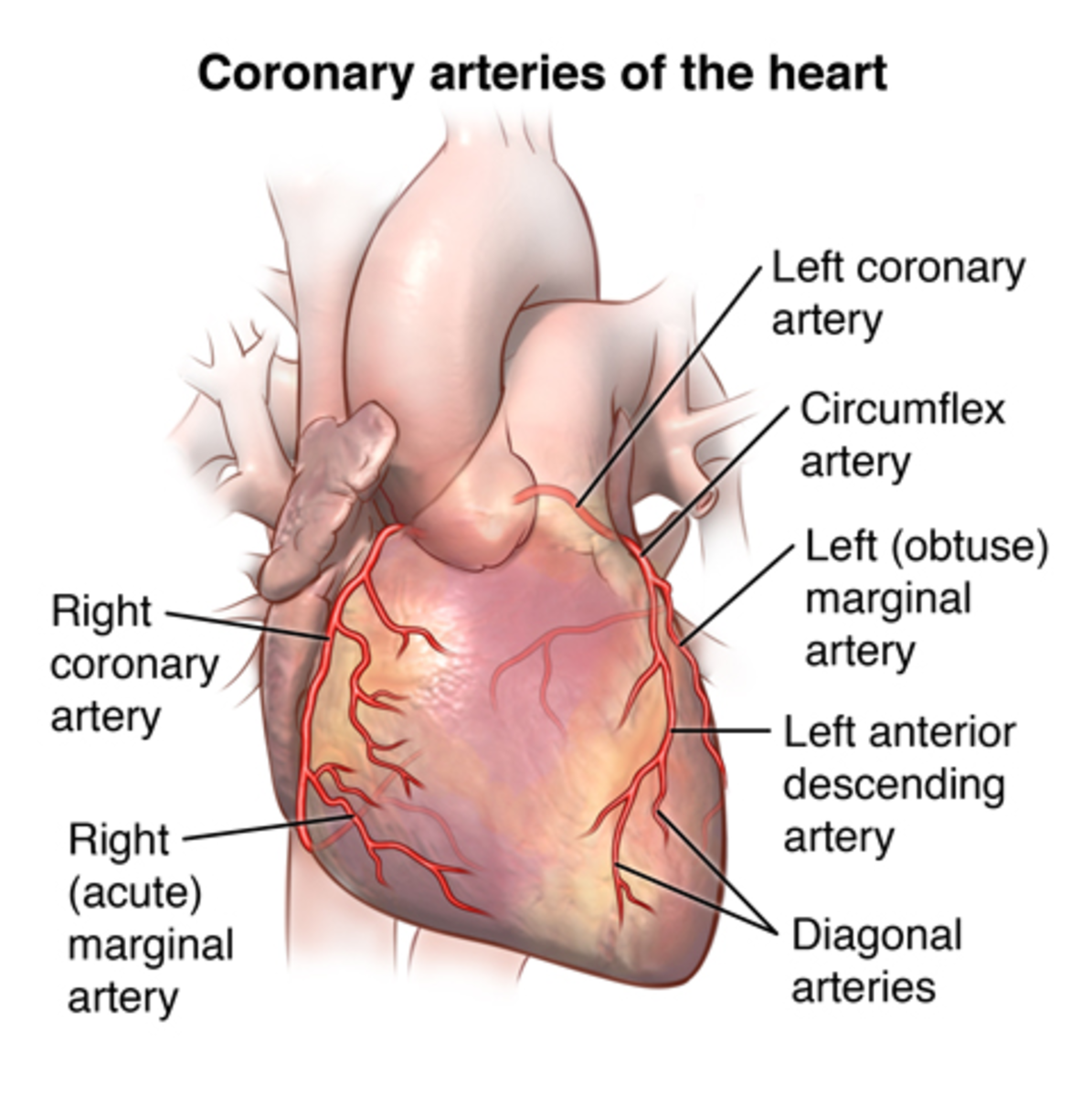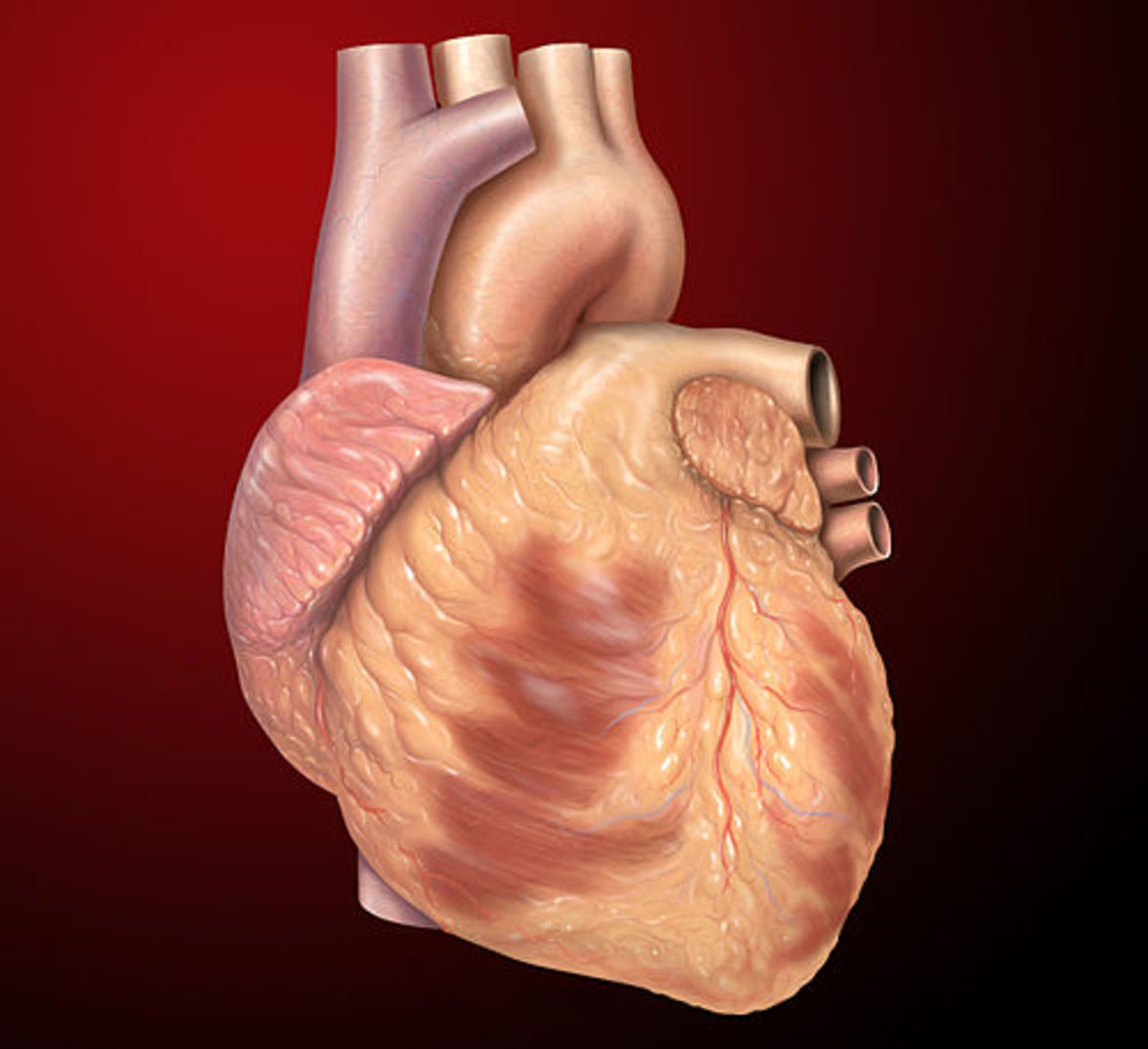Do You or Your Child Have Wolff-Parkinson White Syndrome?



Does your heart race for no apparent reason? You may have WPW.
Rapid, visible pulsations of the chest, shortness of breath, lethargy and loss of appetite. Those are symptoms for an infant with WPW, aka Wolff-Parkinson White Syndrome.
A sudden rapid heartbeat that often begins during exercise, lasting anywhere from a few seconds to several hours, fainting and rapid or irregular heartbeats (arrhythmia) are symptoms for a teenager or young adult.
Dark circles under eyes, monthly vomiting sessions without provocation that included pain stemming from the belly button were symptoms my daughter had at age 7.
I took her to many doctors and specialists but nobody knew what was wrong with her. One doctor was ready to perform surgery on her belly button saying maybe it's an umbilical hernia. Her EKG's always came out normal. From a medical standpoint, she was a healthy child.
I feel guilty admitting this but when she came to me after running outside, she'd tell me her heart was bumping and I told her, of course it is. What happens when it stops? She would laugh and go outside trusting her mother knew better. I had no idea she was literally a walking time bomb.
FYI: When testing for WPW, the heart must be in arrhythmia or it simply will not be detected. In order for it to get to that state, the vagus nerve must be stimulated by doctors to slow the heart rate. This can be done in a number of ways depending on the age of the patient. I will explain how they did it to her later.
One summer day while just coming back from work, I received a call from one of the teacher's at her summer camp that was about 5 minutes away. My daughter couldn't breathe and nobody knew why. They asked if they should call an ambulance. I told them I'd be faster. Thankfully my 11 year old son was home so I brought him with me. When we got there, she was laying on the ground. Her face was blotchy and red. A teacher was holding a bag of ice on her chest, which I instinctively threw off. After placing her in the backseat with her brother who comforted her wheezing, I sped off to the children's hospital 20 minutes away. Within 7 minutes I was there, minus 3 hubcaps and running every light there was. I was on auto pilot.
We pulled into ER, raced in and was met by nurses who immediately took her from me and began working on her. At one point I heard "Epinephrine!" My son and I watched from outside the door and noticed as soon as they injected her with something, the redness in her face became normal as if someone had taken a paintbrush and stroked her face healthy.
As she lay there, I held her hand. Her other hand had a pulse monitor attached to her finger, which was fluctuating between 211 and 220 on the screen. I knew this was too high for a pulse rate but she seemed so still. A doctor came in, told me she had over 28 fire ant bites under her arms and more on her back, probably from camp. The Epinephrine injection and driving too fast was what saved her life. I was told if I had waited 2 minutes more, it would have been too late to save her.
As the doctor asked me outside, he explained they would need to bring in a specialist to take a look because her EKG was normal. That night as she lay there, a cardiologist who just happened to be making his rounds, spoke to the nurses about what was going on, talked to me and said he would like to run some tests, one of which was placing ice over her eyeballs until she couldn't bare it, to slow down the heart rate and bring on arrhythmia while an EKG was being done. Call it divine intervention or luck, he was a WPW specialist and immediately recognized the pattern on the EKG to be WPW.
He explained to me what WPW is and how to treat it. Wolff-Parkinson White syndrome is a birth defect. It occurs in 1-3 out of every 1000 people born, many of whom have no idea they have it until it's too late. It is genetic and should be caught early or can be fatal in adults.
He explained that a person with WPW is born with an extra electrical connection between the atria and the ventricles. This extra electrical pathway causes rapid or irregular heartbeats and arrhythmias, which usually develop in teens or early 20s. But they can begin as early as the first year of life or after the age of 60.
The older you get, the more susceptible you are to fainting, shortness of breath and chest pain with WPW, which brings on paroxysmal supraventricular tachycardia.
If you have Atrial fibrillation, you are at risk for danger if you have WPW because that extra electrical pathway can send impulses to the ventricles much faster than the normal pathway through the atrioventricular node can. That means the ventricles will contract at an extremely faster rate, making the heart inefficient at pumping blood and can be life-threatening. Such a rapid heart rate can also build into ventricular fibrillation, which is fatal unless treated immediately.
FYI: If you feel you are having an episode, or your heart feels as though it is beating erratically, hold your breath and bare down as if you're having a bowel movement and this will change the rhythm of the heart back to normal.
The solution for this is something called Radiofrequency Ablation. It's a long surgery taking at least 6 hours to perform depending on the patient. This is done by destroying the extra electrical pathway using radiofrequency directly into the heart. It's performed in a hospital electrophysiology lab. The patient is given a sedative to reduce discomfort. A wire (electrode catheter) is maneuvered through the groin area and positioned carefully into the chambers of the heart using fluoroscopy (low energy x-rays). Radiofrequency energy (low-voltage, high frequency electricity) is targeted toward the area, damaging the pathway and preventing it from conducting impulses. The success rate is 100% for this procedure when done by a heart specialist who is familiar with WPW. But there are instances where the patient has more than one pathway, which means they would have to get more than one treatment.
The doctor explained that if I did not want the surgery, she could take Digoxin every day until she's an adult then seek different treatments. But her allergy to ant bites was a concern because if she were to get bitten again, she'd need Ephinephrine, and Epinpephrine and Digoxin mixed together cause cardiac arrest. I had no choice. She would have the surgery.
The doctor called me every hour from the operating room to let me know what was happening. Still on autopilot and alone, I turned to prayer. On the 6th hour, the doctor called with bad news; they found multiple pathways on the left side of her heart, which contained a lot of muscle tissue and he couldn't find his way in comfortable because she was awake. The sedative had worn off and she was too young to be given more.
With auto pilot gone, I hung up the phone exhausted and allowed it to hit me all at once. I looked to the window and prayed for a miracle. As I looked up into the sky, I don't know if it was an airplane, I never questioned. But a cloud shaped like a heart suddenly appeared and the phone rang. The doctor said he found a way in and was operating with her wide awake because she wasn't complaining. He said he'd never seen anything like it on such a young patient.
Another 2 hours later, she was wheeled in, sitting straight up in the gurney surrounded by nurses and the doctor all with surprised looks on their faces, not believing this child was awake throughout the entire ordeal, not a tear, only smiling at me and completely cured.
My daughter is now 24 years old. She is healthy, vibrant and still energetic. She doesn't remember much about those days but as a parent, who can forget.
Modern medicine is updating constantly. Stay aware, be informed, ask questions, do your research. I have included helpful links and a video.
http://www.uptodate.com/contents/wolff-parkinson-white-syndrome-beyond-the-basics
http://www.pediatricheartspecialists.com/articles/detail/wolff-parkinson-white_syndrome_wpw
http://nyp.org/health/wolff-parkinson-white.html
The best and most honest booksellers I know on Amazon:
http://www.amazon.com/shops/fridamod

